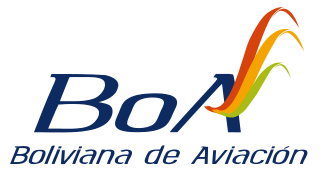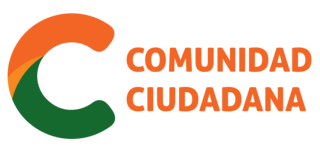Contents
- Incumbents
- Events
- January
- February
- March
- April
- May
- June
- July
- August
- September
- October
- November
- December
- Deaths
- References
| |||||
| Decades: | |||||
|---|---|---|---|---|---|
| See also: | Other events of 2007 History of Bolivia • Years | ||||
Events from the year 2007 in Bolivia
| |||||
| Decades: | |||||
|---|---|---|---|---|---|
| See also: | Other events of 2007 History of Bolivia • Years | ||||
Events from the year 2007 in Bolivia

Bolivia, officially the Plurinational State of Bolivia, is a landlocked country located in central South America. It is bordered by Brazil to the north and east, Paraguay to the southeast, Argentina to the south, Chile to the southwest, and Peru to the west. The seat of government and administrative capital is La Paz, which contains the executive, legislative, and electoral branches of government, while the constitutional capital is Sucre, the seat of the judiciary. The largest city and principal industrial center is Santa Cruz de la Sierra, located on the Llanos Orientales, a mostly flat region in the east of the country with a diverse non-Andean culture.

The Bolivian gas conflict was a social confrontation in Bolivia reaching its peak in 2003, centering on the exploitation of the country's vast natural gas reserves. The expression can be extended to refer to the general conflict in Bolivia over the exploitation of gas resources, thus including the 2005 protests and the election of Evo Morales as president. Before these protests, Bolivia had seen a series of similar earlier protests during the Cochabamba protests of 2000, which were against the privatization of the municipal water supply.

Pando is a department in Northern Bolivia, with an area of 63,827 square kilometres (24,644 sq mi), in the Amazon Rainforest, adjoining the border with Brazil and Perú. Pando has a population of 154,355. Its capital is the city of Cobija.
The Confederation of Indigenous Peoples of Bolivia is a national representative organization of the Bolivian indigenous movement. It was founded in October 1982 in Santa Cruz de la Sierra as the Confederation of Indigenous Peoples of the Bolivian East, with the participation of representatives of four indigenous peoples of the Bolivian East: Guarani-Izoceños, Chiquitanos, Ayoreos and Guarayos.

The current Constitution of Bolivia came into effect on 7 February 2009 when it was promulgated by President Evo Morales, after being approved in a referendum with 90.24% participation. The referendum was held on 25 January 2009, with the constitution being approved by 61.43% of voters.

A constitutional referendum was held in Bolivia on 25 January 2009, postponed from the initially planned dates of 4 May 2008 and then 7 December 2008. Drafted by the Constituent Assembly in 2007, the new constitution was approved in the referendum according to an exit poll by Ipsos Apoyo for La Razón and ATB, a Bolivian television network. Furthermore, it required early elections to be held on 6 December 2009.

The Media Luna or Media Luna Ampliada refers to a group of four departments – Santa Cruz, Beni, Pando, and Tarija – in Bolivia which are home to a greater proportion of opponents to the national government led by Evo Morales and the Movement for Socialism (MAS) than the rest of the country. Pando has seen increasing support for MAS since 2009, while Tarija was initially supportive but has opposed MAS in every election after 2014. In contrast to the predominantly Indigenous Andean populations of the Andean region such as La Paz and Cochabamba, the departments in the Media Luna are majority mestizo, as well as being made up of the remaining 26 groups of lowland indigenes with white minorities, specifically in Santa Cruz de la Sierra.

The Bolivian Constituent Assembly, convened on August 6, 2006, in Sucre, with the purpose of drafting a new national constitution by December 14, 2007; extended from the original deadline of August 6, 2007. The Assembly approved the new Political Constitution of the State on 9 December 2007. It was put to a national referendum held on 25 January 2009, and went into force on 7 February 2009.

A referendum to approve the autonomy statute of Santa Cruz Department of Bolivia was held on 4 May 2008. The vote resulted from strains between the Prefecture of Santa Cruz and President Evo Morales. The referendum was declared illegal and unconstitutional by the National Electoral Court. Final results from the referendum showed that 85.6% of participating voters supported autonomy. Abstention rates were 37.9%. Partisans of the Movement for Socialism called for a boycott of the vote, and the Guarayo, Guaraní, Chiquitano, Ayoreo, Yuracaré-Moxeño indigenous peoples were urged to reject holding the vote in their territories.

A vote of confidence in President Evo Morales in the form of a referendum was held in Bolivia on 10 August 2008. The vote was held to determine whether Morales, Vice President Álvaro García Linera, and eight out of nine departmental Prefects should stay in office. Morales received more than 67% support and six of the eight prefects were returned. The prefects of Cochabamba Department and La Paz Department were defeated and had to face re-election.

Referendums on departmental autonomy statutes were held in four departments of Bolivia—Beni, Pando, Santa Cruz, and Tarija—in May and June 2008. These four departments, known as the Media Luna, voted in favor of autonomy in the June 2006 elections. The National Electoral Court had blocked the referendums, along with the proposed referendum on Morales's new constitution. The referendums were also unconstitutional, as the constitution in force at the time had no provisions for departmental autonomy. Under the Framework Law on Autonomy, passed in 2010, the autonomy statutes must be harmonized with the 2009 Constitution before being enacted.

An autonomy referendum was held in Tarija Department in Bolivia on 22 June 2008, following the autonomy referendum held in Santa Cruz Department on 4 May 2008 and the autonomy referendums held in Beni Department and Pando Department on 1 June 2008.

The 2008 Bolivian political crisis saw protests against President Evo Morales and calls for greater autonomy for the country's eastern departments. Demonstrators escalated the protests by seizing natural gas infrastructure and government buildings. In response, supporters of the national government and its reform of the constitution, mobilized across these regions.

General elections were held in Bolivia on December 6, 2009, following a constitutional referendum held on 25 January 2009. The election was initially expected to be held in 2010. Voters elected:

Boliviana de Aviación and stylized as BoA, is the flag carrier airline of Bolivia and is wholly owned by the country's government. Founded in October 2007 and headquartered in Cochabamba, it operates most of its domestic network out of its primary hub at Jorge Wilstermann International Airport while its international services operate out Viru Viru International Airport in Santa Cruz de la Sierra. It is the largest airline in Bolivia and sixth largest in South America, in terms of fleet size and passengers carried.

The Presidency of Evo Morales began on January 22, 2006 when Evo Morales was inaugurated as the 80th President of Bolivia, following his victory in the 2005 general election, where he won 53.7% of the vote, defeating Jorge Quiroga, Samuel Doria Medina, and several other candidates. Morales increased taxation on the hydrocarbon industry to bolster social spending, emphasising projects to combat illiteracy, poverty, racism, and sexism. Vocally criticizing neoliberalism and reducing Bolivia's dependence on the World Bank and International Monetary Fund, his administration oversaw strong economic growth while following a policy termed "Evonomics" which sought to move from a liberal economic approach to a mixed economy. Scaling back U.S. influence in the country, he built relationships with leftist governments in the Latin American pink tide and signed Bolivia into the Bolivarian Alliance for the Americas. Attempting to moderate the left-indigenous activist community, his administration also opposed the right-wing autonomist demands of Bolivia's eastern provinces. Winning a recall referendum in 2008, he instituted a new constitution that established Bolivia as a plurinational state and was re-elected in 2009. His second term witnessed the continuation of leftist policies and Bolivia's joining of the Bank of the South and Community of Latin American and Caribbean States; he was again reelected in the 2014 general election. Following the disputed 2019 general election and the ensuing unrest, Morales resigned and flew to Mexico where he had been granted political asylum.

Indigenous peoples in Bolivia, or Native Bolivians, are Bolivian people who are of indigenous ancestry. They constitute anywhere from 20 to 60% of Bolivia's population of 11,306,341, depending on different estimates, and depending notably on the choice "Mestizo" being available as an answer in a given census, in which case the majority of the population identify as mestizo, and they belong to 36 recognized ethnic groups. Aymara and Quechua are the largest groups. The geography of Bolivia includes the Andes, the Gran Chaco, and the Amazon Rainforest.

Civic Community is a liberal Bolivian political coalition led by former president Carlos Mesa, founded in 2018 to contest the 2019 general election. It was born of the alliance of Revolutionary Left Front (FRI), Sovereignty and Freedom (Sol.Bo), All Organization, and Kochala Force parties. The alliance holds Mesa's presidential candidacy, with former minister Gustavo Pedraza as his running mate. The CC elected 50 deputies and 14 senators in the country's Plurinational Legislative Assembly in the election.

Bolivia-Venezuela Relations are the existing bilateral relations between the Plurinational State of Bolivia and the Bolivarian Republic of Venezuela. Both nations established their diplomatic relations on 14 September 1883, during the government of the President of Bolivia Narciso Campero Leyes and the government of the President of Venezuela Antonio Guzmán Blanco.
The following is a chronology of notable events from the year 2023 in Bolivia.